
Benjamin Disraeli, 1st Earl of Beaconsfield was a British statesman, Conservative politician and writer who twice served as Prime Minister of the United Kingdom. He played a central role in the creation of the modern Conservative Party, defining its policies and its broad outreach. Disraeli is remembered for his influential voice in world affairs, his political battles with the Liberal Party leader William Ewart Gladstone, and his one-nation conservatism or "Tory democracy". He made the Conservatives the party most identified with the British Empire and military action to expand it, both of which were popular among British voters. He is the only British prime minister to have been born Jewish.
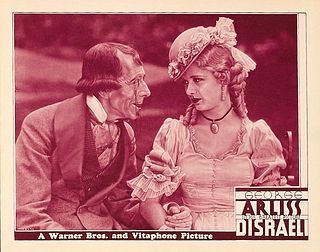
Disraeli is a 1929 American pre-Code historical film directed by Alfred E. Green, released by Warner Bros. Pictures, Inc., and adapted by Julien Josephson (screenplay) and De Leon Anthony (titles) from the 1911 play Disraeli by Louis N. Parker.

Mary Anne Disraeli, 1st Viscountess Beaconsfield was a British peeress and society figure who was the wife of the British statesman Benjamin Disraeli.

Phineas Finn is a novel by Anthony Trollope and the name of its leading character. The novel was first published as a monthly serial from 1867 to 1868 and issued in book form in 1869. It is the second of the "Palliser" series of novels. Its sequel, Phineas Redux, is the fourth novel in the series.

Gathorne Gathorne-Hardy, 1st Earl of Cranbrook, was a prominent British Conservative politician. He held cabinet office in every Conservative government between 1858 and 1892. He served as Home Secretary from 1867 to 1868, Secretary of State for War from 1874 to 1878, Lord President of the Council from 1885 to 1886 and as Chancellor of the Duchy of Lancaster until 1886. In 1878, he was appointed Secretary of State for India and thereafter was elevated to the peerage, entering the House of Lords as Viscount Cranbrook. He has been described as a moderate, middle-of-the-road Anglican, and a key ally of Disraeli.
Robert Norman William Blake, Baron Blake,, was an English historian and peer. He is best known for his 1966 biography of Benjamin Disraeli, and for The Conservative Party from Peel to Churchill, which grew out of his 1968 Ford lectures.
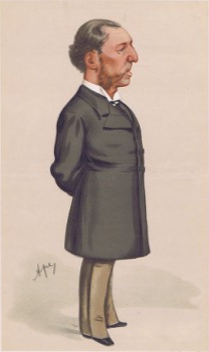
Frederick Greenwood was an English journalist, editor, and man of letters. He completed Elizabeth Gaskell's novel Wives and Daughters after her death in 1865.
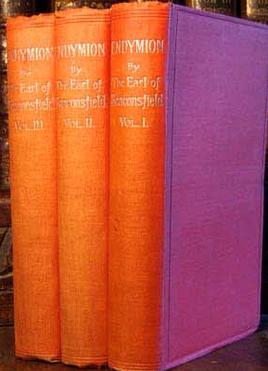
Endymion is a novel published in 1880 by Benjamin Disraeli, 1st Earl of Beaconsfield, the former Conservative Prime Minister of the United Kingdom. He was paid an advance of £10,000 for it. It was the last novel Disraeli published before his death. He had been writing another, Falconet, when he died; it was published, incomplete, after his death.
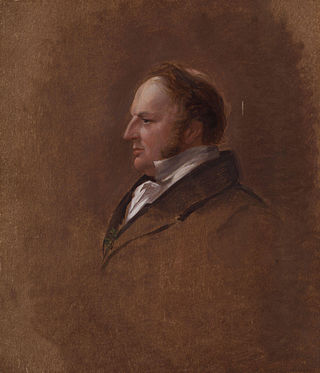
Sir Robert Harry Inglis, 2nd Baronet, FRS was an English Conservative politician, noted for his staunch high church views.

At Bertram's Hotel is a work of detective fiction by Agatha Christie, first published in the United Kingdom by the Collins Crime Club on 15 November 1965 and in the United States by Dodd, Mead and Company in 1966. The novel follows Chief Inspector Fred Davy as he investigates an upmarket hotel that is at the centre of a mysterious disappearance. Among the lodgers at the hotel is Christie's popular character Miss Marple; At Bertram's Hotel was marketed as a Miss Marple novel, despite the fact that Marple only appears in a few chapters and has a completely passive role in the investigation.
Coningsby, or The New Generation is an English political novel by Benjamin Disraeli, published in 1844.

The Watsons is an abandoned novel by Jane Austen, probably begun about 1803. There have been a number of arguments advanced as to why she did not complete it, and other authors have since attempted the task. A continuation by Austen's niece was published in 1850. The manuscript fragment itself was published in 1871. Further completions and adaptations of the story have continued to the present day.

Coningsby Ralph Disraeli, was a British Conservative politician, and MP for Altrincham.

Benjamin Disraeli's tenure as prime minister of the United Kingdom of Great Britain and Ireland began when Queen Victoria first invited him to form a government in 1864. He was then the Conservative prime minister on two occasions, first in 1868 and then between 1874 and 1880.
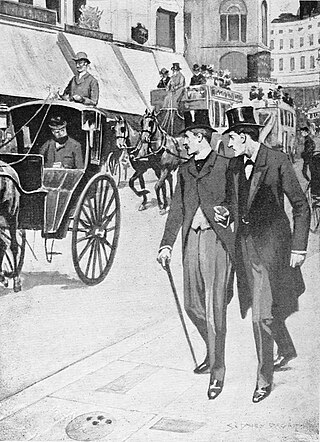
The gentleman detective is a type of fictional character. He has long been a staple of crime fiction, particularly in detective novels and short stories set in the United Kingdom in the Golden Age. While not necessarily aristocracy, the heroes of these adventures are often members of the British gentry or gentlemen by conduct. They are sometimes contrasted with professional police force detectives from the working classes.
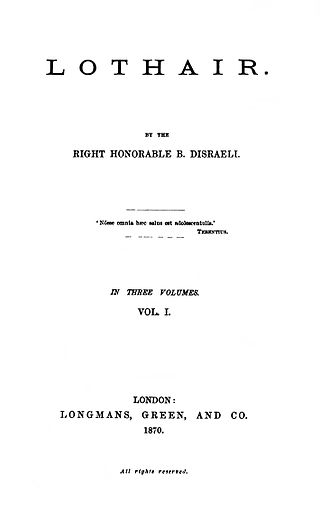
Lothair (1870) was a late novel by Benjamin Disraeli, the first he wrote after his first term as Prime Minister. It deals with the comparative merits of the Catholic and Anglican churches as heirs of Judaism, and with the topical question of Italian unification. Though Lothair was a hugely popular work among 19th century readers, it now to some extent lies in the shadow of the same author's Coningsby and Sybil. Lothair reflects anti-Catholicism of the sort that was popular in Britain, and which fueled support for Italian unification ("Risorgimento").
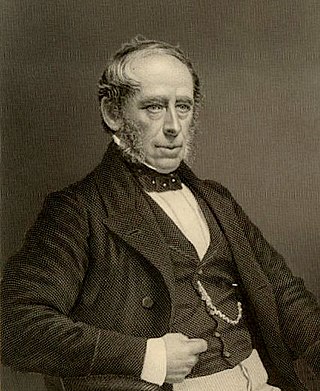
The New Social Alliance or New Social Movement was an idea supported by some British Conservatives in 1871 for an alliance between working-class leaders and aristocratic Conservatives to ameliorate the conditions of the working class. The historian John Vincent has called the New Social Alliance "conservative socialism" and a "poor man's Young England".
Contarini Fleming: A Psychological Romance is the fourth and most autobiographical novel written by Benjamin Disraeli, who would later become a Prime Minister of the United Kingdom. It was published anonymously in May 1832 but despite the author considering it his best novel, was a financial failure.
Henrietta Temple is the ninth novel written by Benjamin Disraeli, who would later become a Prime Minister of Britain.
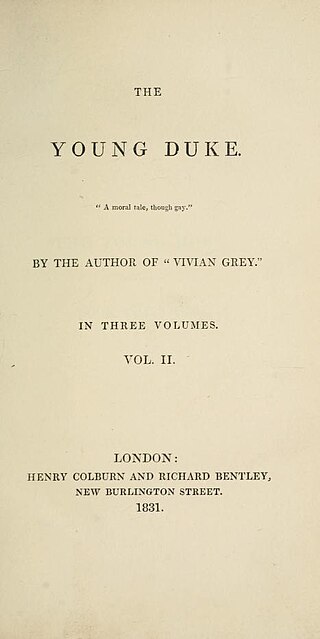
The Young Duke - a moral tale, though gay is the third novel written by Benjamin Disraeli who would later become Prime Minister of the United Kingdom. Despite its moderate success, Disraeli came to dislike the novel which was a hindrance to his political career.














